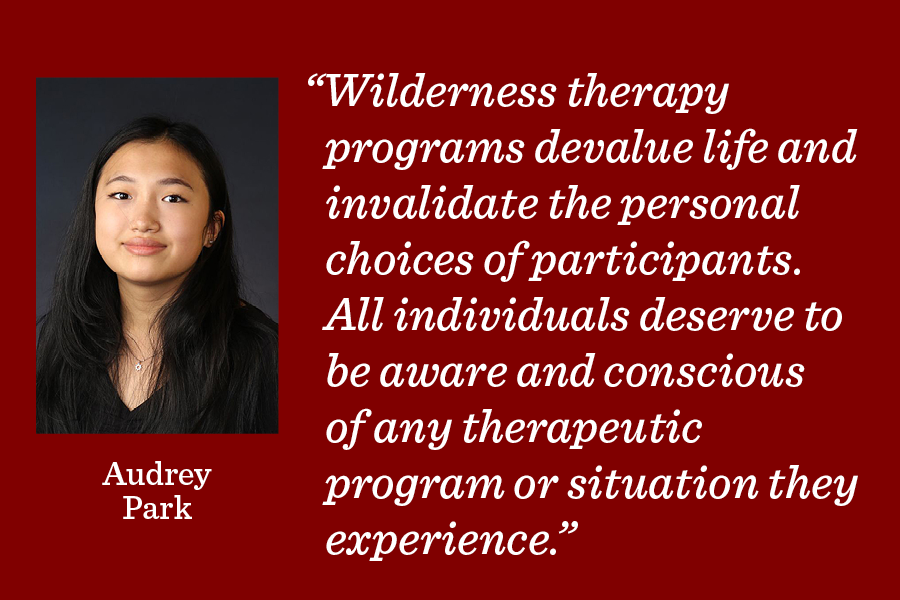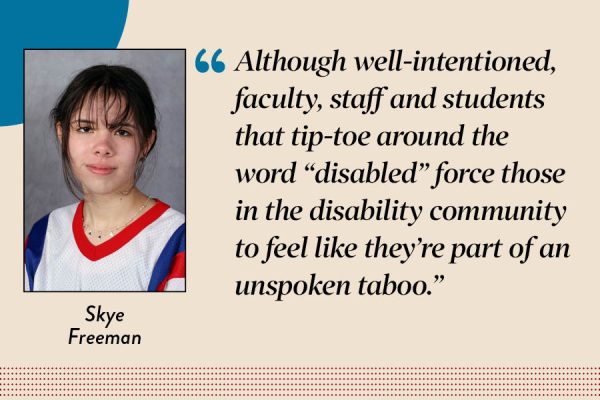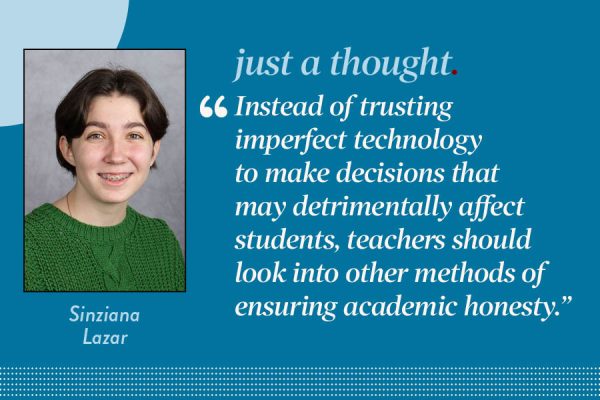Involuntary participation in wilderness therapy must be eliminated
Midway Staff
Participation in wilderness therapy programs without consent must be eliminated, according to assistant editor Audrey Park.
April 28, 2022
While scrolling on TikTok, a video of a distraught teenager appeared on my feed. It told a story of being awakened at 2 a.m. and essentially kidnapped by strangers who work for a program described as “wilderness therapy.” In disbelief and horrified by the evidently nonconsensual methods described, I put the words “wilderness therapy” in the search bar. To my surprise, dozens of videos depicting similar experiences appeared.
Wilderness therapy, also called outdoor behavioral health care, aims to expose participants to unfamiliar and new outdoor experiences in an attempt to address mental health issues. Typically geared toward adolescents, wilderness therapy programs are generally chosen for participants by family members. At wilderness camps, participants engage in activities ranging from hikes to basic survival skills like starting a fire.
While perhaps effective in theory, the questionable and unethical forced participation without consent must be eliminated.
Wilderness therapy programs devalue life and invalidate the personal choices of participants. All individuals deserve to be aware and conscious of any therapeutic program or situation they experience. When a process as dehumanizing as wilderness therapy is facilitated by figures who are supposed to be trusted — parents in a minor’s case — it can cause trust issues, further damaging the teen’s well-being.
Wilderness therapy programs devalue life and invalidate the personal choices of participants. All individuals deserve to be aware and conscious of any therapeutic program or situation they experience.
— Audrey Park
Participants of some wilderness programs are forced to endure a daily routine of physically exhausting and mentally draining activities for months. One participant even said that the supplied dehydrated food caused them constipation. Testimonials made by victims confronting the abuses of wilderness therapy circulate on social media and the internet.
Wilderness therapy programs have helped some participants who have claimed that, in the end, it was “so worth it.” However, therapeutic programs that do not jeopardize the integrity of adolescent life do exist. Families should instead utilize treatments that do not go against participants’ will and agency.
Resorting to wilderness programs that further jeopardize the mental sanity of teenagers and potentially risk inducing trauma should be reconsidered. Instead, replace them with consensual therapies and forms of rehabilitation where participants are entirely aware of the process they will undergo. When they are given the choice, the participants are able to fully experience the benefits of the therapy.


















